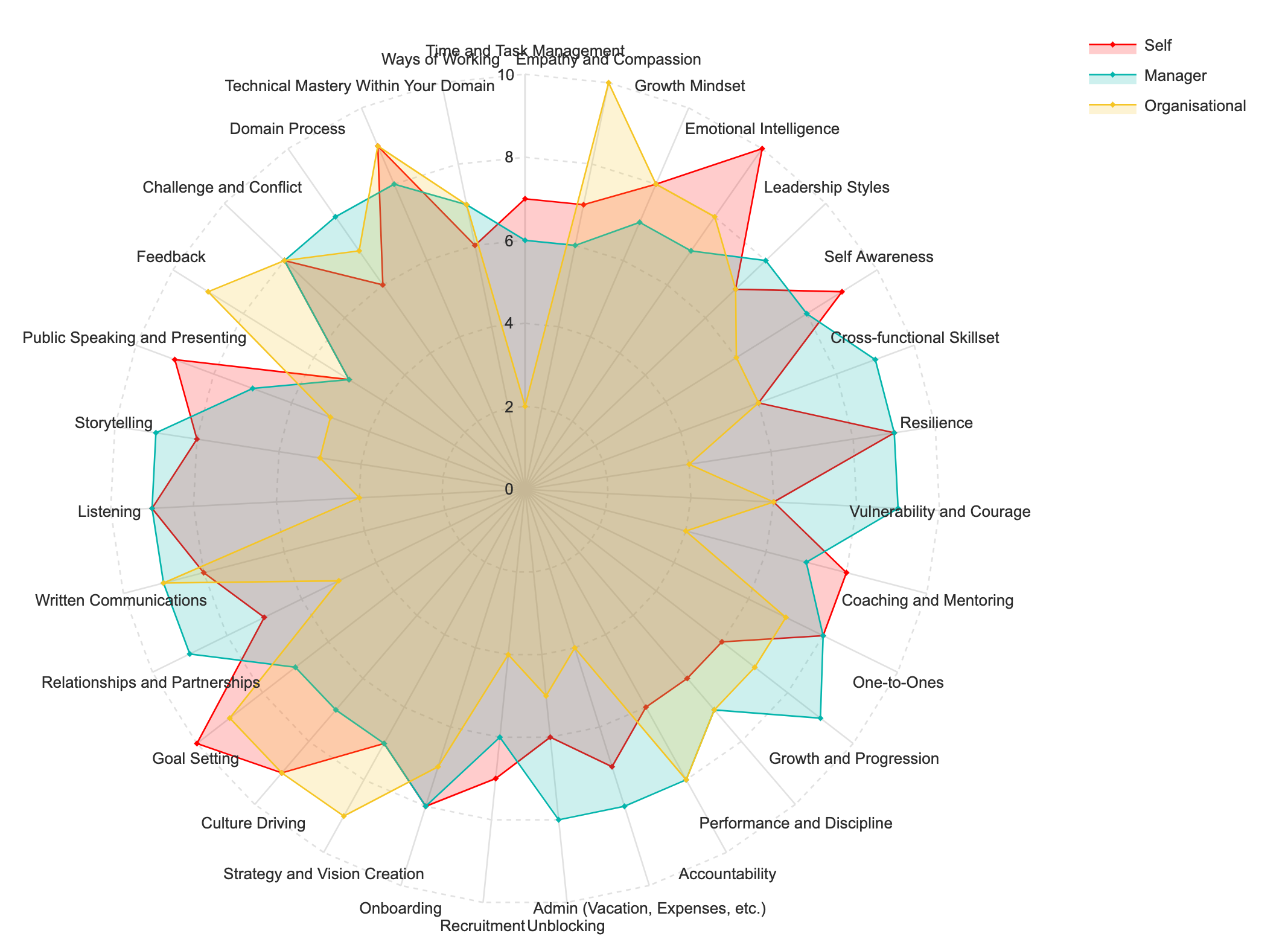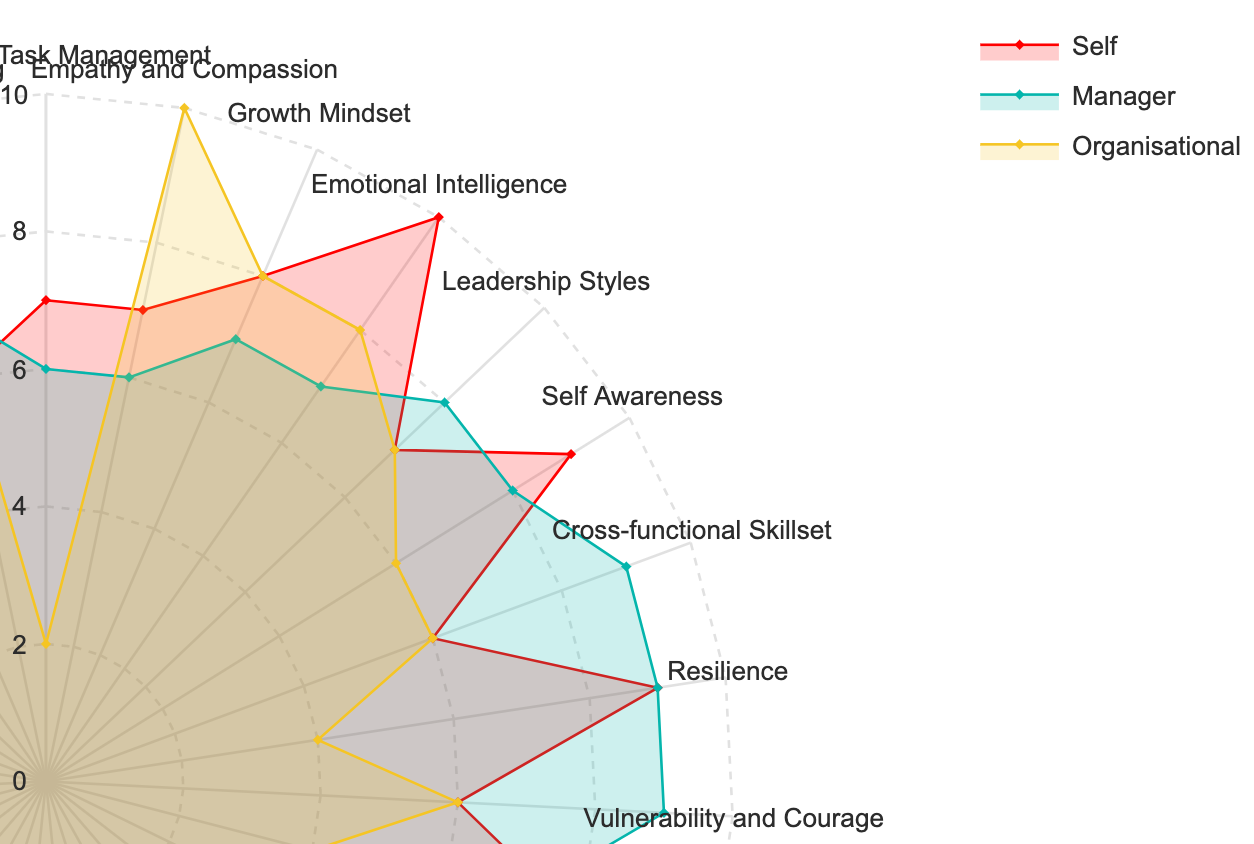A tool to support managers in reflection, conversation and measurement for ongoing growth
I thought it time to announce the availability of a tool I've been working on. Welcome to:
I'm launching it now to maximise feedback to help me iterate and improve upon it. It will give me the healthy level of pressure I need to push it forward to completion.
Why another tool around management?
Simply put, because everyone deserves a good manager.
Management is hard, and can be quite isolating - we don't always get feedback, and we don't always hear about our blind spots or our growth areas. Some organisations will 'measure' managers with surveys from peers or team members, which can be really useful, but that often focusses in on the effectiveness at the job (e.g. 'My manager really understands what motivates me') and perhaps less on the individual traits that make up effective management.
This tool aims to put growth into the hands of managers, and allows them to transparently gain feedback and listen to their teams, and then plan in against opportunities that surface from that feedback.
Why now?
I had a direct report who was interested in people management, but not 100% sure it was for them. In our 1:1s, I could have pointed them at books, blog posts, and resources and told them to read and ask questions, but nothing really helped us form a meaningful conversation. I started to research what may be out there to help us deep dive into what it is to be a manager, with them at the core of the conversation, and eventually created brilliant managers.
What is brilliant managers?
It is a tool to support discussions around what it is to be a manager. Be that, people interested in becoming managers or people currently performing management responsibilities, at any level of an organisation.
It breaks down a set of 32 traits across a number of broad fields:
- Self - looking inward at ourselves, those qualities that make us, well, us.
- Team - as a manager, our focus is on those in our care, this focusses in on those skills and attributes that maximise on our ability to support, challenge and grow others.
- Strategy - as a manager, you have wider context, and it is your job to help the team understand the direction of travel - be it a north star that you are aiming towards with a product, or some key metrics you want to influence in the product.
- Communications - as our individual contributor days reduce, the key is in how we handle interactions, so this area focusses in on those interpersonal areas.
- Domain Expertise - we are likely to be managing within the domain that we were an individual contributor (e.g. Engineering Manager who had previously been a Software Engineer). Knowing your domain remains important, even if you are not so hands on as you once were.
The site is broken up into two areas:
- The Guide - which covers all of the above in detail, and helps you reflect upon what each of these mean for you as a manager.
- The Tool - the reason for the existence of Brilliant Managers really, this is what managers will use to reflect upon the areas from the guide, and score as a means of informing conversations around growth and opportunities.
Using the tool
The tool is aimed to be an ongoing measurement - allowing you to understand where you are now, but over time, where you were 3, 6, 12 months ago too - and quantify and plan that growth. The aim is that it is completed by yourself, but also ideally your manager, and for bonus points if you're an existing manager, your team. In a similar way to the johari window, it can highlight areas that are known to all, but also highlight areas where there are blind spots. It can also provide powerful transparency to your team and/or manager, building trust and allowing them to understand and support your journey of improvement.
- Self Scoring - You score yourself against the areas above, from 0 (I have no skills or awareness of this area) to 10 (I am a expert in this area, and I do not feel I could improve).
- Other Scoring - Your manager (and/or team) would also score you across the various skills.
- Organisational Scoring - Your manager can also add some organisational scoring to the tool to create a local context for that trait. Our growth is not only personal, but contextual to our current role also.
You can read more about the usage of the tool on the Brilliant Managers site.
What's next? Challenges
There are a more things outstanding than are completed unfortunately, but the aim is:
- Finish it! - there are gaps in guidance (e.g. how does someone differentiate a 5/10 vs a 6/10 for empathy?), Providing better guidance around classification and usage is going to be important if I hope to have it adopted.
- Build the tool - currently, it's hosted as a google sheet as a means of 'proving out the concept', but I'm a software engineer, and the builder in me wants to turn this into a tool that people can login to, and use and track on an ongoing basis. I know I would want to use a tool like this, so if I'm the only one that ever uses it, and I learn something from building and hosting it, it's still growth.
- Explore the wider context - it doesn't solve for everything, how can managers support each other? There are still many human aspects to doing our job, so it's looking at the wider context within an organisation and management relationship to make this all more useful I think will be important.
- Write a book - there are so many great books covering what it is to be a manager (I list a number of them on the brilliant managers site), but I see a gap here in what I'm attempting to do compared to other books I've read on the subject - so I shall test myself to see if I do indeed have a book in me.
It's worth being clear, the aim is to provide something that is useful to others and enables conversations around growth and elevates the main goal - helping everyone have a better manager than they had before using it.
I'd love to have people trial this in their organisations and give feedback - please reach out to me via any social media platform.

